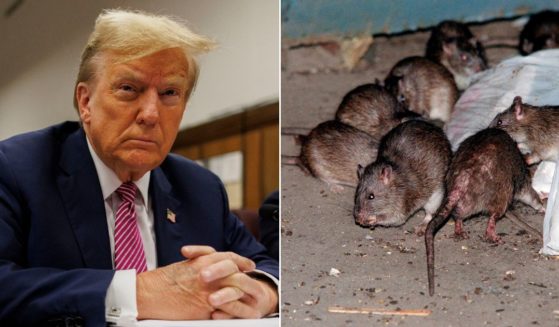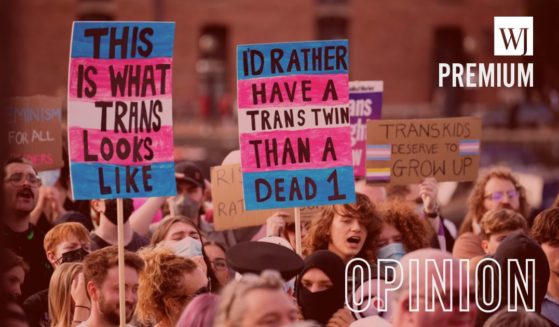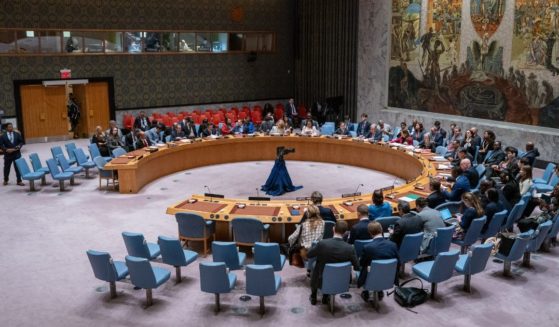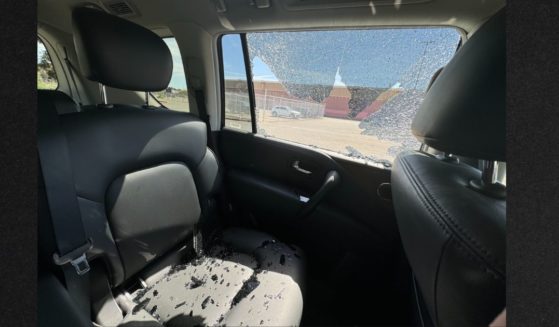Easy-to-Read Graphic: All These Government Benefits Show Why Employers Can't Find New Hires
A report released by the Foundation for Government Accountability puts to rest the debate over whether enhanced unemployment benefits are a primary culprit for employers struggling to hire new workers.
The Bureau of Labor Statistics reported in July there were more than 9 million job openings in the United States, while more than 13 million people received unemployment benefits of various types.
Having recently taken a road trip from Phoenix to Coeur D’Alene, Idaho, I saw “Help Wanted” or “Now Hiring” signs in nearly every business I went into in the blue states of California, Oregon and Washington. All have the federal unemployment bonus still in place.
In fact, some restaurants were operating on limited hours, even closing certain days, because they just don’t have the staff.
A graphic put together by Fox Business Network, based on the Foundation for Government Accountability report, shows why.
Some people can collect nearly $3,700 per month in government benefits by not going back to work.
It’s a real mystery why so many businesses can’t find workers [image via @larry_kudlow] pic.twitter.com/rYJxTKVmix
— Tom Elliott (@tomselliott) August 3, 2021
A big chunk of that is the $300 per week federal enhancement to unemployment benefits that is due to expire next month. It was supposed to expire in March, but the Democrats passed the $1.9 trillion American Rescue Plan Act extending the payments.
Both President Joe Biden and Federal Reserve Chairman Jerome Powell acknowledged in recent statements the enhanced benefits are keeping people out of the workforce.
Biden initially said during a CNN town hall on July 21 that he saw no evidence that the additional benefits had a “serious impact” on hiring; however, he added, “We’re ending all those things that are the things keeping people back from going back to work,” The New York Times reported.
Powell said last week that COVID-19 fears may be part of the reason Americans aren’t going back to work. But he went on to say, “There’s also been very generous unemployment benefits, which are now rolling off. They’ll be fully rolled off in a couple of months.”
“It’s a really unusual situation to have the ratio of vacancies to unemployed be this high,” Fed Chair Powell says. “This is about job selection. … There may also be some factors that are holding people back” such as COVID-19 concerns, childcare, and unemployment benefits. pic.twitter.com/tq8qfKMbHL
— Yahoo Finance (@YahooFinance) July 28, 2021
The Foundation for Government Accountability report offered definitive data points to show the enhanced benefits are keeping people on the sidelines by comparing the 26 states that ended them versus those that did not.
“[I]n states that ended the federal pandemic-related unemployment programs, work search activity rose by more than 28 percent in May and June,” the FGA said.
“This growth was 68 percent faster in states that ended the unemployment bonus than in states that did not.”
Unsurprisingly, unemployment is declining in the states that opted out of the enhanced benefits.
“Since May 8, new unemployment claims have fallen by 30 percent in states that ended the bonus, hitting their lowest levels since the pandemic hit,” the organization said.
Meanwhile, in the states that kept paying the enhanced benefits, unemployment claims ticked up in five of the last six weeks before the report came out on July 22.
“Since June 5, the number of new people filing for unemployment has risen by more than 16 percent in states keeping the unemployment bonus,” the FGA said.
The organization also noted in a news release in early July that there was a 4.9 percent increase in claims in states that continued unemployment bonuses, while states that ended them saw a 3.2 percent decrease in initial unemployment claims.
NEW: Our latest research at @TheFGA shows that Governor @AsaHutchinson’s decision to end the unemployment bonus in Arkansas has increased work search participation, created jobs, and reduced unemployment spending. Read more here: https://t.co/sXRhdGIocJ
— Hayden Dublois (@HaydenDublois) August 3, 2021
“State leaders are proving that ending enhanced unemployment bonuses can reignite the economic recovery for workers and businesses alike,” said Hayden Dublois, senior research analyst at the FGA.
“This recent report highlights how ending the bonus will help get unemployed individuals back into the workforce quickly, help fill the record number of open jobs, and ensure small businesses can thrive,” he said.
This is not rocket science. These benefits need to end.
Democrats may well be tempted to use the delta variant of the coronavirus to argue that the enhancement should be extended.
Stop.
The vaccine is widely available and free. It has proven highly effective in preventing serious illness in the “breakthrough” cases.
It’s time for folks collecting benefits to get back to work, and the best way to encourage that is to end the bonus payments.
Truth and Accuracy
We are committed to truth and accuracy in all of our journalism. Read our editorial standards.












